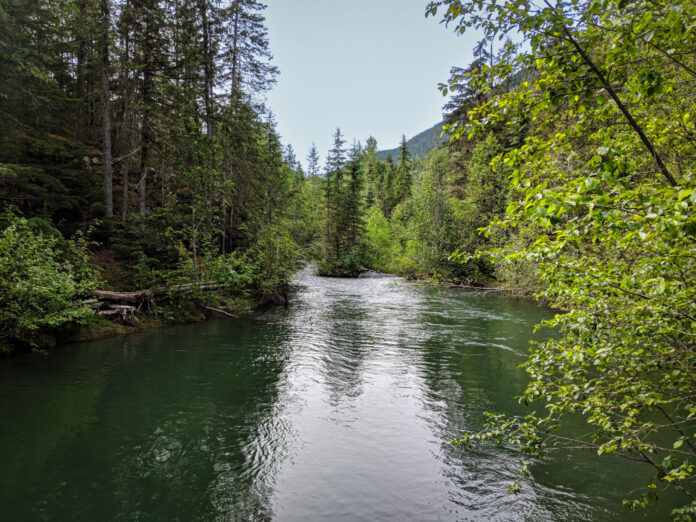Hot, dry summers are expected to continue throughout the Columbia Basin, and Living Lakes Canada (LLC) is urging improved water management tailored to local needs.
LLC’s Columbia Basin Water Monitoring Framework (CBWMF) Network encompasses 118 monitoring sites across the region, focusing on small watersheds, including streams, lakes, wetlands, groundwater and snow depth.
The latest data from LLC shows how small watersheds in the West Kootenay are responding to climate change and how it could impact local water supply.
“In many ways, the smaller watersheds of the Canadian Columbia Basin together act as a canary in the coal mine, and as our understanding of them improves, they can be used to track changes in water reliability for community resilience and ecosystem health,” said Dr. Martin Carver, consulting geoscientist and science advisor for the CBWMF Network.
The most recent data looks at north-facing watersheds, including Bjerkness, Harrop, Kootenay Joe and Carlyle.
Arlo Bryn-Thorn, CBWMF program manager, says these watersheds are especially important for local water availability.
“North-facing watersheds hold particular value for future community water sources. We’re seeing them have a lower melt response in the spring, and as a result, having a longer flow period over the summer drought,” said Bryn-Thorn.
Bryn-Thorn says some areas are showing signs of stress from climate change, while others are remaining stable.
“These data-driven insights can help us assess drought potential in small watersheds, help us develop adaptation strategies, and inform smarter, more sustainable water management at the local level,” said Bryn-Thorn.
“We’re seeing watersheds responding in different ways to drought and warming. That really highlights the need for tailored approaches for climate-ready planning across B.C.’s southeast.”
Historically, snowpack levels supplied a steady supply of water late into the summer across the Columbia Basin, but LLC data says that is no longer the case.
Bryn-Thorn says trends show water supplies are in jeopardy due to droughts and high temperatures.
“Water in the summer is running low because spring heat is starting earlier, less rain is falling in the summer, more precipitation is falling as rain instead of snow in the winter and heat waves are lasting longer,” said Bryn-Thorn.
“This is impacting our late summer flows and increasing the amount of time we’re seeing low flow in some areas.”
Bryn-Thorn says more data, research and monitoring can help local, regional, provincial and federal governments make informed decisions on water conservation.
“We are seeing increased variability in climate and variability in responses in our water sources. Advocacy and informed decision making are another important component,” said Bryn-Thorn.
Be the first to know! Don’t miss out on breaking news and daily updates in your area. Sign up to MyEastKootenayNow News Alerts.




